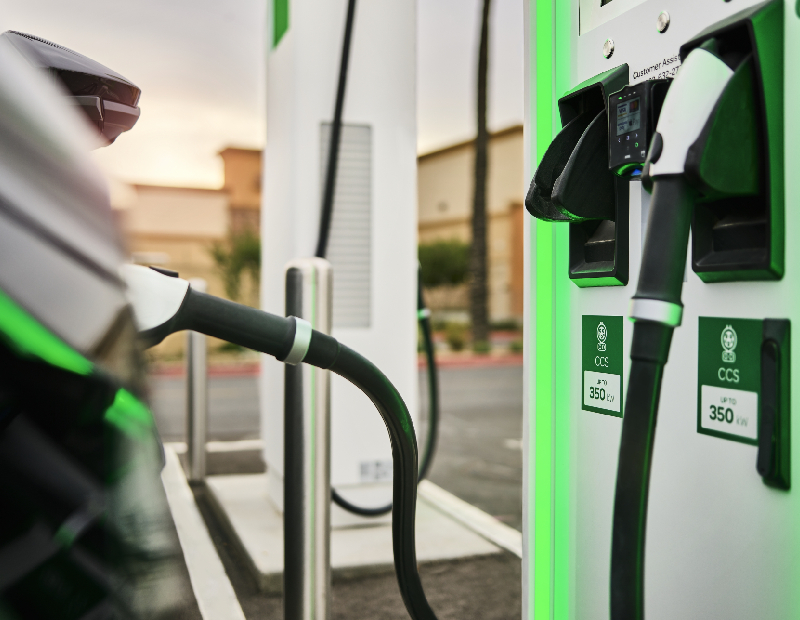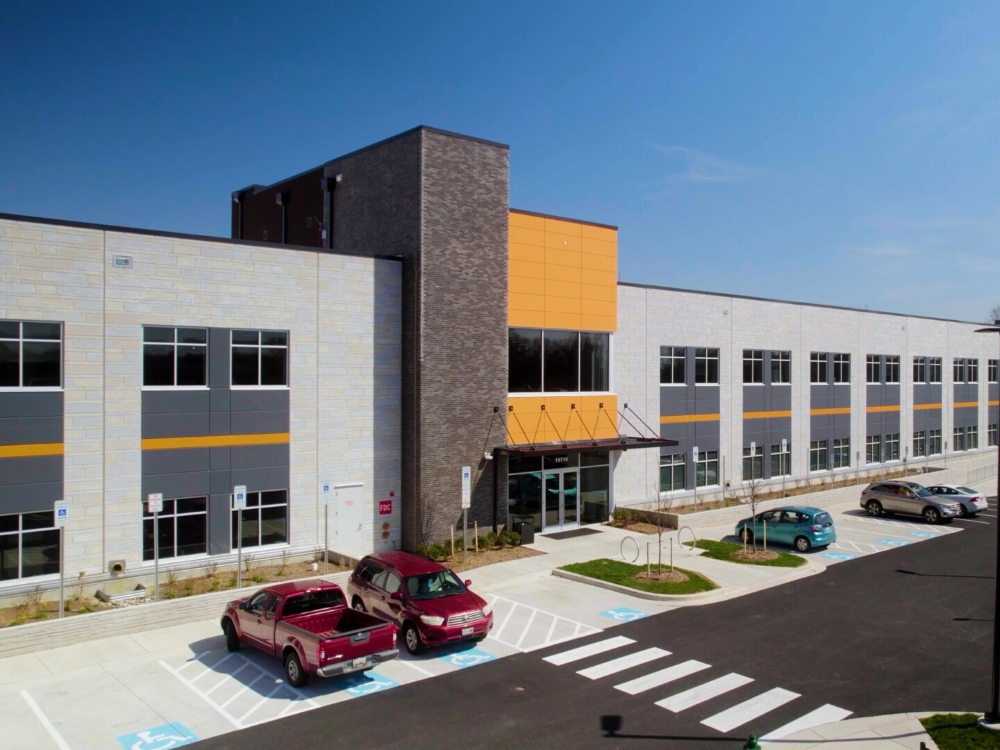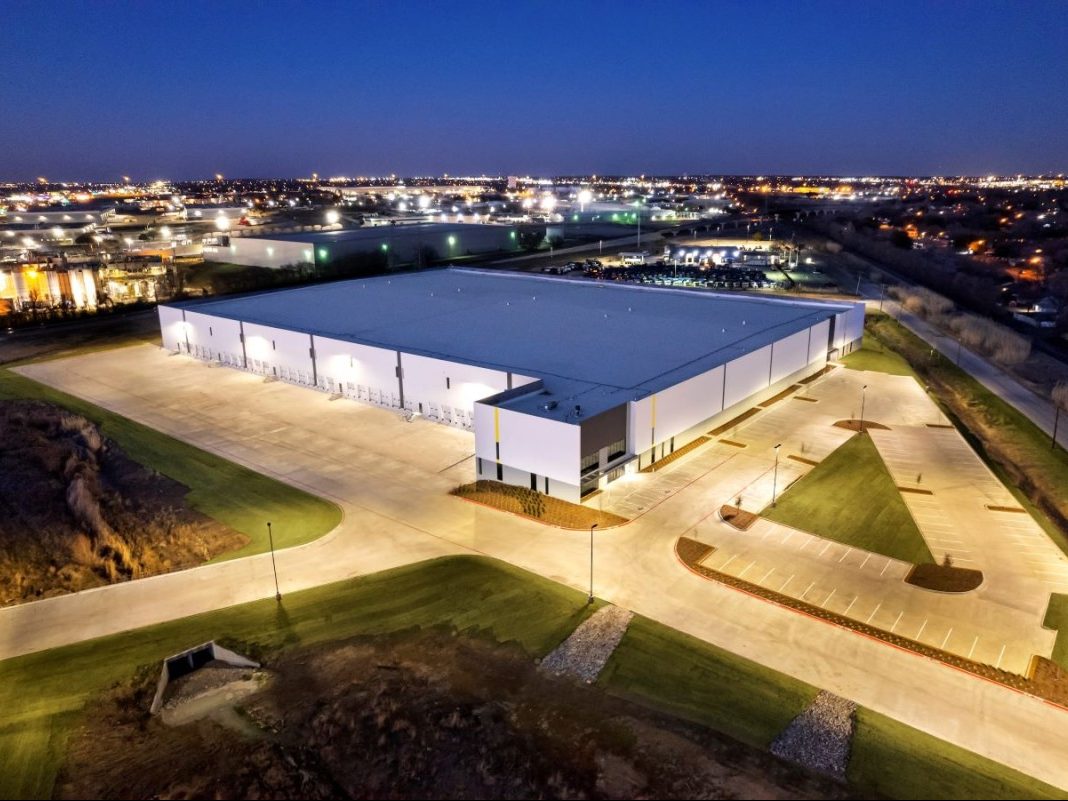Charging Ahead to Meet EV Drivers’ Needs
In a sign of things to come, Unibail-Rodamco-Westfield is installing ultra-fast EV charging stations at 19 retail centers.

EV charging station. Image courtesy of Electrify America
Taking a step that points to the future of property operations, Unibail-Rodamco-Westfield and Electrify America, an electric vehicle fast-charging network, are partnering to bring ultra-fast EV charging to select Westfield retail properties.
The charging stations, featuring a total of more than 100 individual chargers, will be added at 19 Westfield shopping centers in seven states by the end of 2021.
READ ALSO: Westfield Upgrades Shopping Centers With Solar Power
Electrify America’s state-of-the-art technology provides EV drivers with access to the fastest EV charging speeds currently available, said Anthony Lambkin, senior director of operations for Reston, Va.-based Electrify America. The company’s chargers are equipped with power levels of up to 150 kW and 350 kW, allowing capable EVs to add up to 20 miles of range per minute. The exact speed of charge is dependent on the specific model of vehicle plugged into the charger. To ensure adequate access by customers waiting to charge, each Westfield location will have multiple chargers, with at least three chargers per location and as many as 14 at some locations, Lambkin said.
By using Electrify America’s smartphone app, Westfield customers will be able to locate the chargers and find out whether one is available, said Paul Kurzawa, executive vice president of U.S. operations for New York City based Unibail-Rodamco-Westfield. Customers will also be able to monitor the session status remotely and pay for the charge from the app. Chargers will be available on a first-come, first-served basis, with no reservations necessary.
“We know already from being in touch with our guests this is an amenity becoming more and more top of mind among those with electric vehicles and those considering getting one,” Kurzawa told Commercial Property Executive. “We see it as a very important amenity for our guests. They hook up, get a charge, dash in for a cup of coffee or pair of jeans, and do it all as a one-stop experience,” he added.
READ ALSO: Get Ahead of the Coming EV Wave
Competitive upside
The more EVs appear on roadways, the more EV charging is becoming an amenity commercial real estate must have to remain competitive, Lambkin contends. Electrify America works with a variety of organizations, from global retailers like URW to local mom-and-pop shops seeking to offer charging to their customers. “Our goal is to ensure EV drivers have a convenient, easily accessible place to charge up,” he said. Locations like shopping centers usually provide a good selection of nearby activities and amenities.
The growing demand for EV charging prompted Rep. Michael Burgess (R-Texas) to introduce legislation last month proposing a $10 billion program to map the best locations for future charging stations.
EV charging stations present property owners with opportunities and challenges. One opportunity is revenue. “If charging customers for a charge, there is the obvious upside,” said Lisa Woodruff, vice president and global head for retail at Turner & Townsend, a consulting firm. She suggests that non-conventional and niche retail locations could benefit the most.
For example, gas stations adding chargers may be able to also add retail services and products of interest to EV drivers who stay on the site considerably longer than a typical five-minute visit to fuel conventional vehicles. Some EV stations will come with LED screens capable of displaying programming and commercials, which could provide an additional revenue stream.
Planning ahead
Challenges include technology advances that may require upgrades to charging docks to prevent obsolescence. “Power requirements for fast chargers can be extensive and will require close coordination between property owners, developers, charging dock providers and utility companies to ensure the proper service is provided to the site (or) building,” she added. “The cost per kilowatt-hour varies depending on location and peak time, which should be considered (in) budget planning.”
Given the global rise in EV production, charging stations will be a standard part of planning parking in the future, Woodruff predicted. “Even if retailers are not prepared to add charging docks right away, they should be considering adding EV infrastructure during the construction phases in order to future-proof,” she advised. “Infrastructure can easily be laid during construction, in both site work and buildings, to later accommodate EV charging demands.”
Property owners and operators must take the convenience of speed into account, along with factors like the amount of time customers spend on the premises and the fast-paced evolution of vehicle battery technology, according to Lambkin.
“EV charging should be a convenience offered to drivers of vehicles today and those to come in the future, which will likely be able to take high amounts of power very quickly,” he said.







You must be logged in to post a comment.